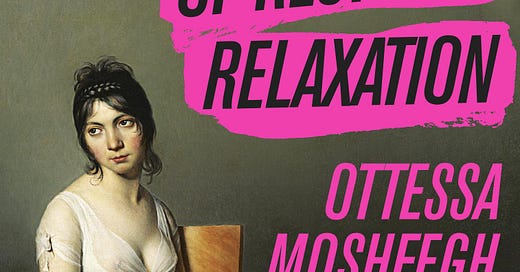The great pandemic novel was published two years before the pandemic. (That’s nothing: the great pandemic movie hit screens in 1993.) It was written by Ottessa Moshfegh and its nameless narrator decides to hibernate for just one year. Unlike those under lockdown, she isolates by choice: “My hibernation was self-preservational,” she reports. “I thought that it was going to save my life.”
But her account of its monotony is resonant as well as darkly comic:
Days slipped by obliquely, with little to remember, just the familiar dent in the sofa cushions, a froth of scum in the bathroom sink like some lunar landscape, craters bubbling on the porcelain when I washed my face or brushed my teeth. But that was all that went on. And I might have just dreamt up the scum.
This was our dream, too.
Why does Moshfegh’s narrator retreat from life? We never really learn. Her parents recently died and she is in the process of selling their house; she is aimless and cynical. But her response seems disproport…
Keep reading with a 7-day free trial
Subscribe to Under the Net to keep reading this post and get 7 days of free access to the full post archives.



